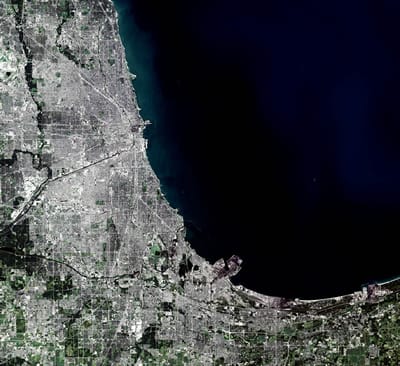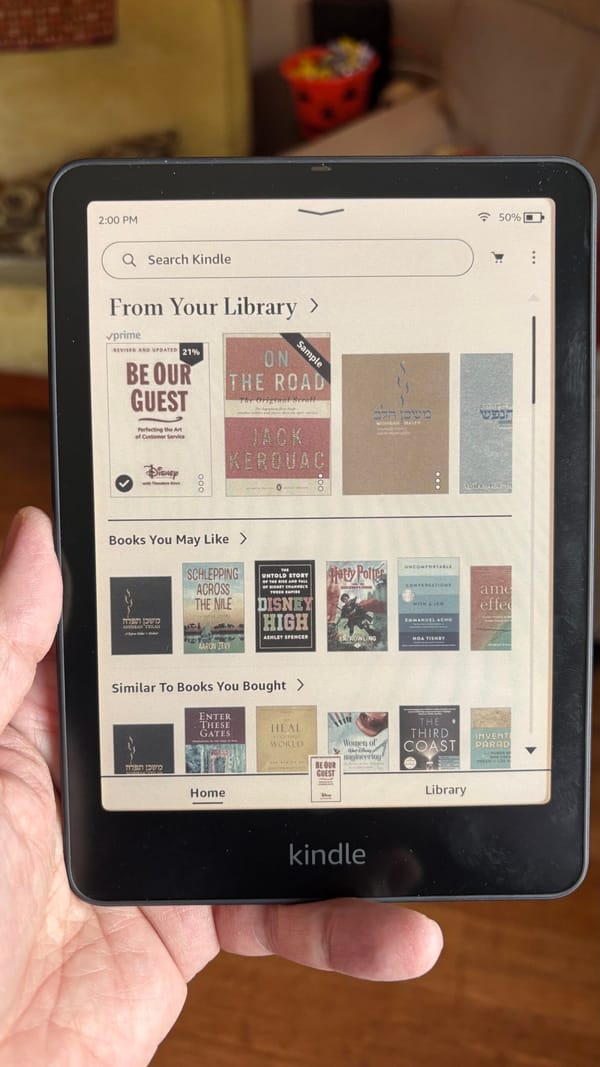Who's Afraid of the Big, Bad 'Burbs?
One of the things I shouted loudest when I first began Chicago Carless four-and-a-half years ago no longer applies. Back in mid-2005, I still carried around my New-York-native anti-surburban bias. On recent reflection, it's time to let the suburbs have their due. At least in Chicago.

One of the things I shouted loudest when I first began Chicago Carless four-and-a-half years ago no longer applies. Back in mid-2005, I still carried around my New-York-native anti-surburban bias. On recent reflection, it's time to let the suburbs have their due. At least in Chicago.
Before 2003, when I still thought I'd be a lifelong New Yorker, the suburbs were almost a dirty word. There it's no wonder why. It's hard enough to make your way across congested Gotham, much less strike an equally passenger- or traffic-jammed path out into what New Yorkers consider to be the unwashed hinterland. For some Manhattanites, that hinterland begins at the water's edge before you even make it into the city's four other boroughs (where most of the city's population actually resides.)
Worse, once you make it from NYC to points elsewhere, a glaring fact slaps you in the face. You're no longer in the city many people (not me) consider to be the center of the known universe, so wherever you are at the moment and whatever you intend to do there will never be a.) interesting, b.) relevant, or c.) worthy enough to have justified the trip.
In June 2005, my second post ever on this blog was Suburbasaurus. Written weeks after I made my move from an outer Windy City neighborhood into downtown Chicago, in the piece I bitched about the ability of suburban and out-of-town tourists to slow and clog Loop sidewalks and repeatedly ask the same newbie questions. (I do admit the most frequent question of all still makes me want to hand the person a map and walk away: "How do I get to Union Station from here?")
It's taken me seven years in Chicago to finally admit the city-suburban contract doesn't work quite the same way here as it does in New York. As it turns out, sometimes I actually enjoy the Chicago 'burbs. And sometimes I really enjoy having my fellow regional citizens come downtown to share the fun of my high-rise neighborhood with me. (Again, I do admit, not those who stand 40 floors beneath my apartment window and yell into the early morning sky when staggering from the House of Blues to the nearest taxi stand.)
All digression aside, compared to where I'm from, it's easier to travel between city and suburb in Chicago. Locals can't conceive the truth of it, but transit and traffic congestion are far less punishing in this town, making it a relative breeze to travel across Chicago--or out into the suburbs.
And maybe it's due to that subtle Midwestern way of avoiding disagreement, but the Windy City and its nearby neighbors seem a lot less prone than NYC and not-NYC to tear into each other and publicly defame each other's relative worth. Of course, this relative good-neighbor policy could also be due to the giganticism of Cook County. Chicago and many close-in suburban towns tend to have a common enemy--the shenanigan-happy, tax-hungry board of the country's second most populous county that contains them all. In New York, where each borough is its own county, the big bully on the block tends to be the city, itself.
For whatever reason, I don't dread my weekly trips to my Oak Park coffee klatsch (although the village's new logo certainly gives me pause), or visits to Forest Park, or Berwyn, or Evanston. Or further-out places like Brookfield (home of this blog's hip-suburban chick Val). Or edge of Chicagoland towns like Geneva (and its bucolic, riverside Island Park), or Naperville. Or from time to time, even big-box-retail-giddy Schaumburg.
Is that a gasp I just heard?
None of this means I want to pull up stakes tomorrow and move to the suburbs (although regular readers will recall I almost did just that last year.) But I'm officially dropping the sneer when the subject of them--or the possibility of spending time in them--comes up. I always say the greatest force that keeps me in this annually frozen city is the ability to share it with the locals who live here. That applies to the suburbs, too. Chicagoans--defined as broadly as possible--are on the whole the most giving, fair, and open-minded people I've ever met in my life. You should see my New York friends grimace when I say that, yet half of them say they want to get the heck out of NYC and the other half already have.
Way back when I was in grad school training to be an urban planner (a career I left behind when I left the Big Apple), I would have agreed heartily with urbanist author James Kunstler's view of America's suburbs as boring places not worth caring about. I would have argued against the idea common in conservative circles that urban liberals like me needlessly perpetuate an anti-surburban bias. Yet that's what I've done for the past several years here in Chicago.
Although a great body of planning thought would dissect the ills of the suburbs and, in the case of some progressive thinkers, rightly offer solutions to help make them more engaging places to live/work/play, that doesn't mean that all suburbs are worthy of disapprobation. No matter how big the city in which you were born.
If Chicago's taught me one thing, it's the beauty of a balanced environment. I love looking down from my high-rise balcony at a forest of skyscrapers. But I also love looking out from that balcony at the horizon. From time to time, I like being a dot on that horizon, too. It's a horizon I could never see, much less appreciate, from the biased perspective of a borough-bound New Yorker.
Seven years on, I wouldn't have it any other way.




